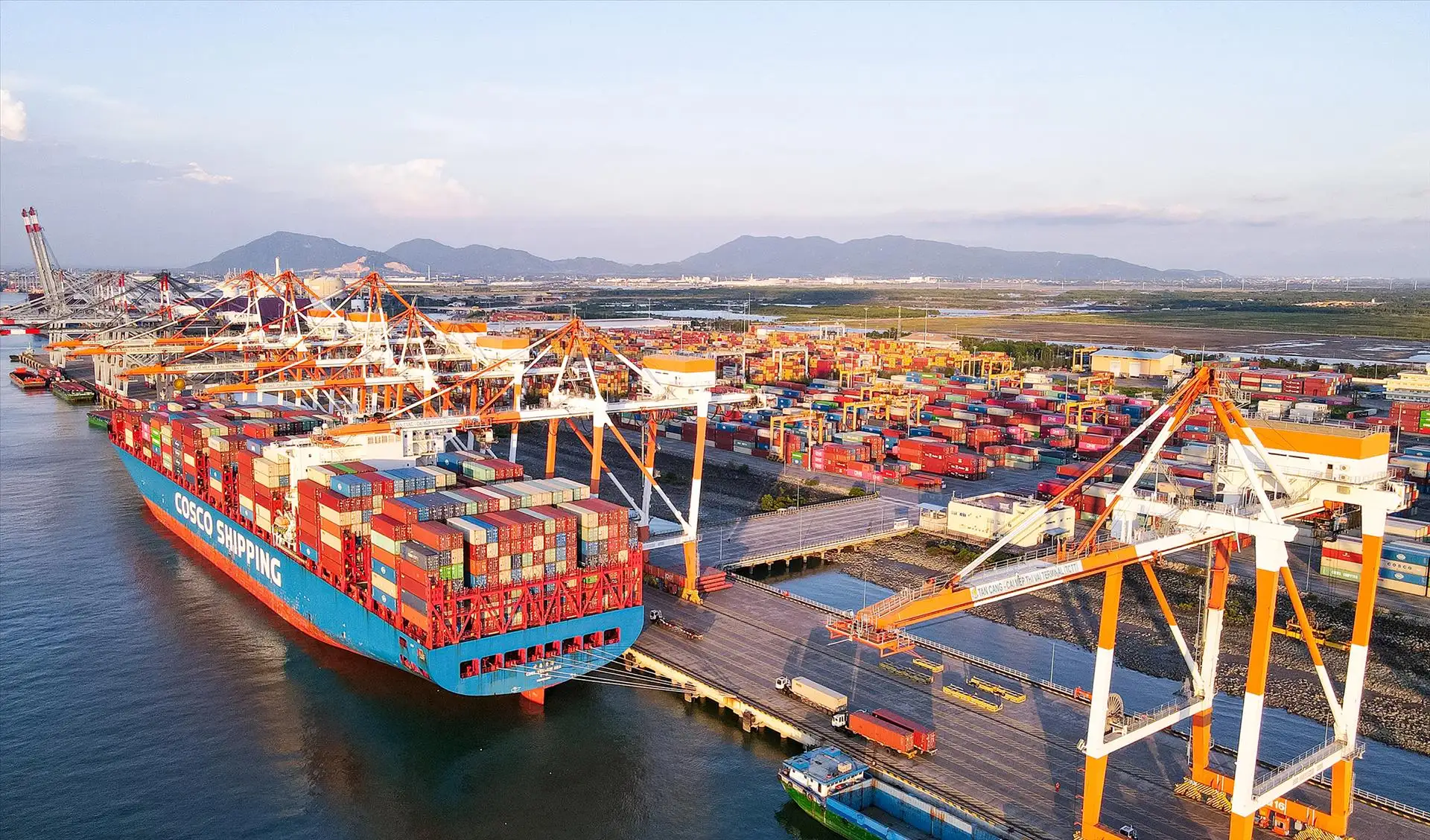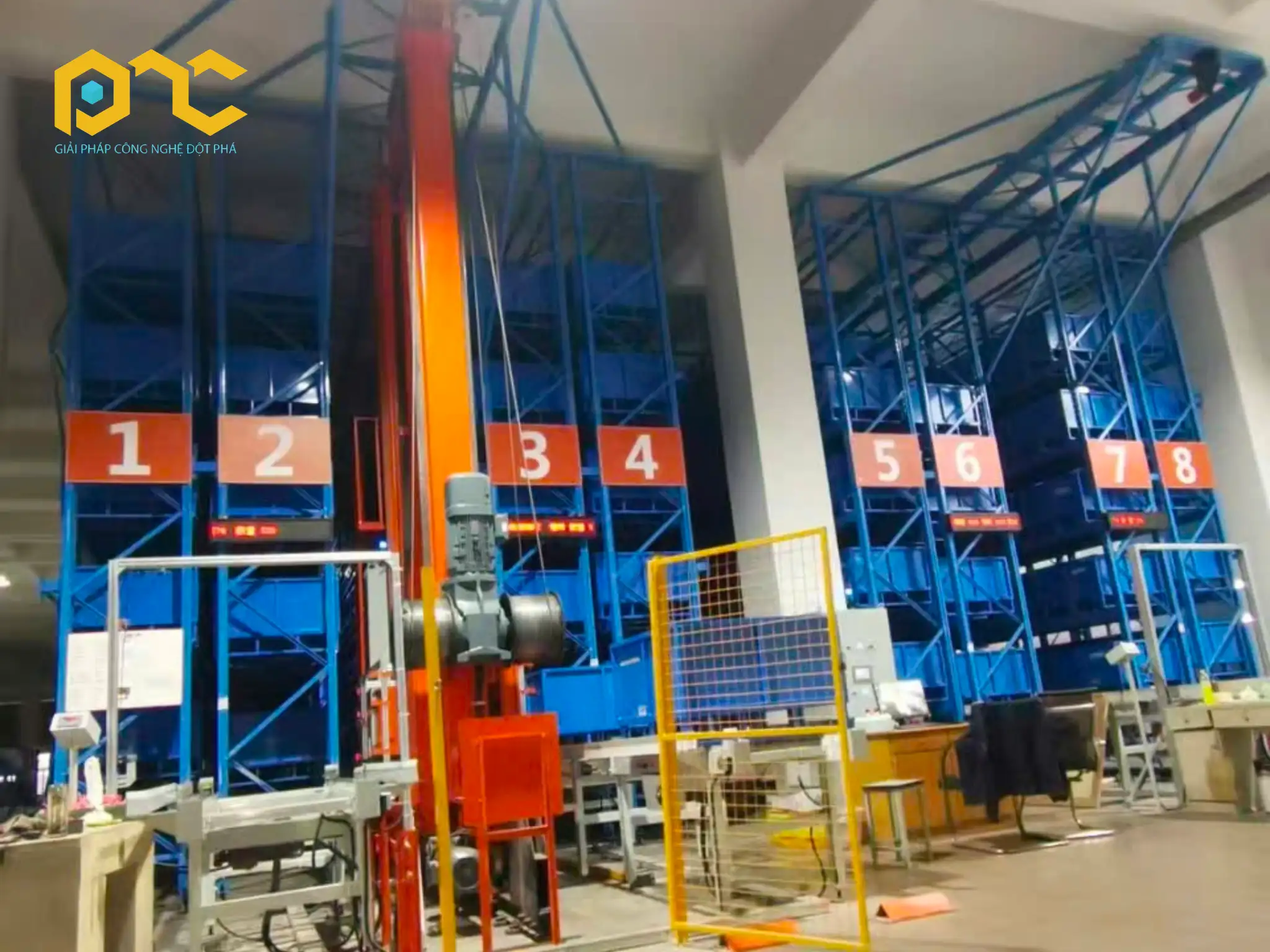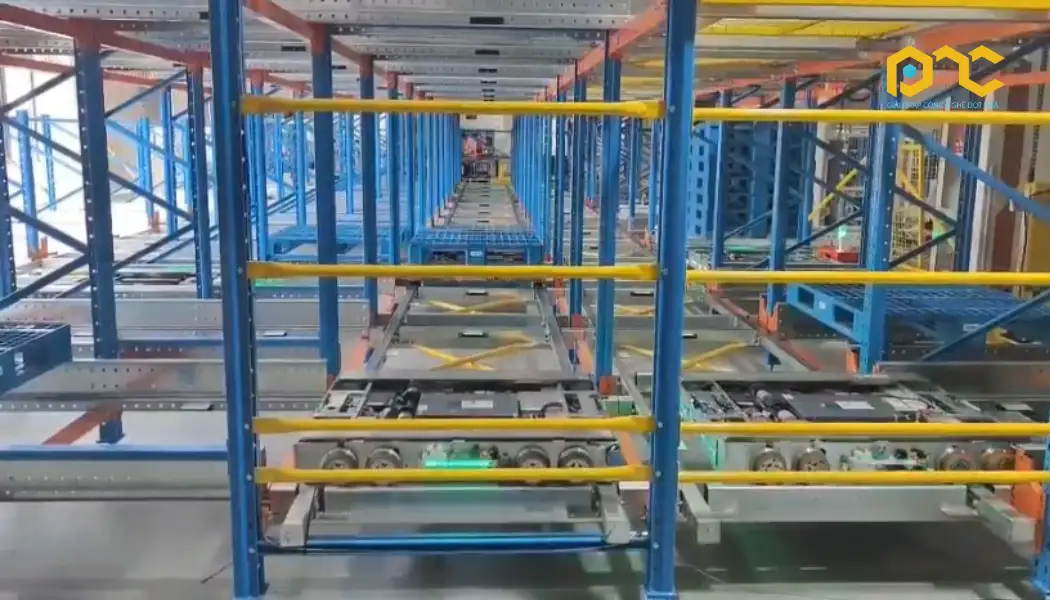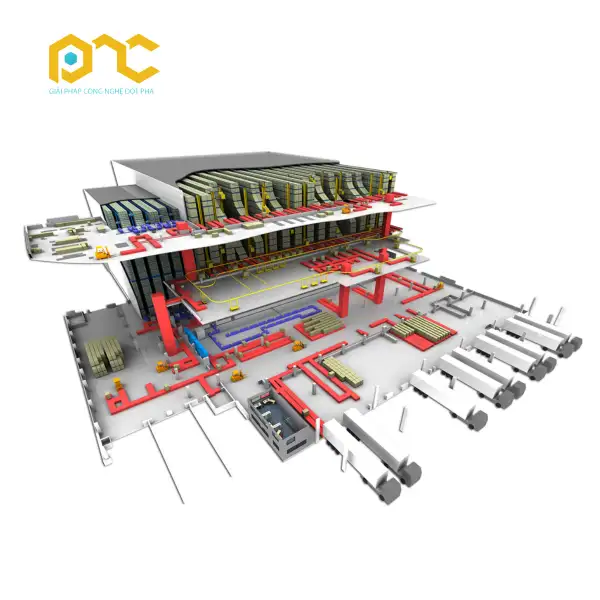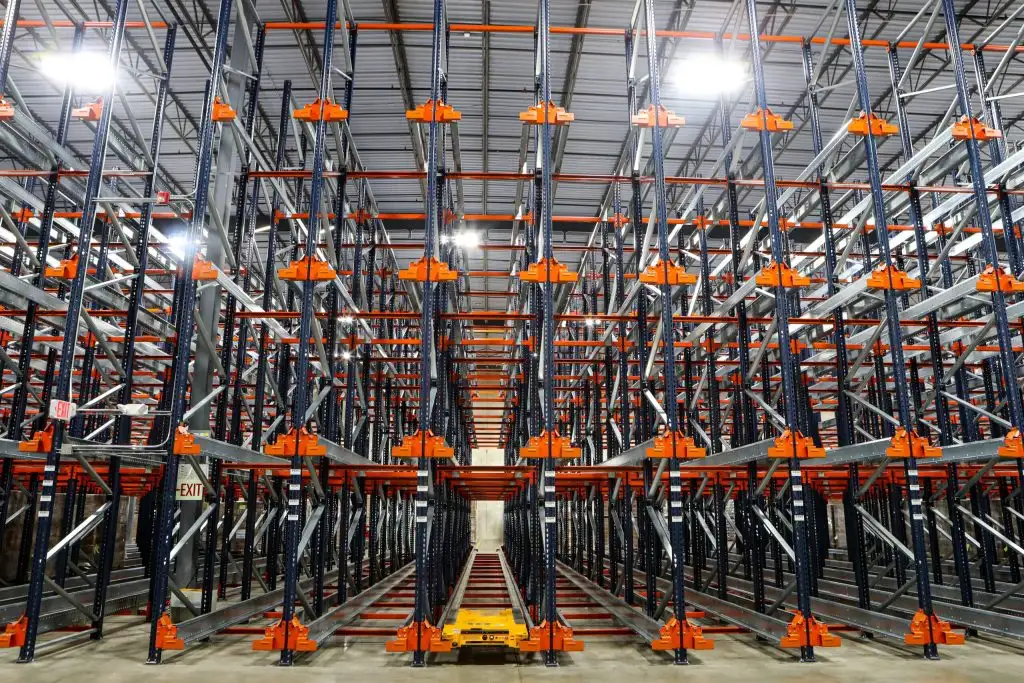In the modern industry, material handling plays a crucial role in the management, storage, and transportation of raw materials and products from the starting point to the destination. This process includes several stages such as receiving goods, shipping, storage, packaging, and transportation. To optimize efficiency and ensure accuracy in material handling, the application of technology is the key. In this context, material tracking is significant, assisting warehouse staff and production processes. In this article, the PNC team will focus on analyzing the automotive manufacturing sector, our area of expertise.

What does Material Handling encompass?
Material handling involves the entire process of transporting, storing, and processing raw materials and products from the point of import to when they reach consumers or are used in production. It comprises various stages, including:
- Receiving: Receiving and inspecting new materials.
- Storage: Determining the location and method of storing materials in the warehouse.
- Picking: Preparing items to meet demand.
- Sorting & Transporting: Sorting different types of goods and transporting them to the required locations.
- Manufacturing: Transporting materials to manufacturing lines, ready for the assembly process into finished products.
Why is material tracking necessary?
During the manufacturing process, some stages are susceptible to material loss, and specific types of materials may go missing or be forgotten during transportation from one place to another. Particularly when there are issues with material backlog or production halts due to transport disruptions, this results in significant waste in material flow control and affects the business efficiency.
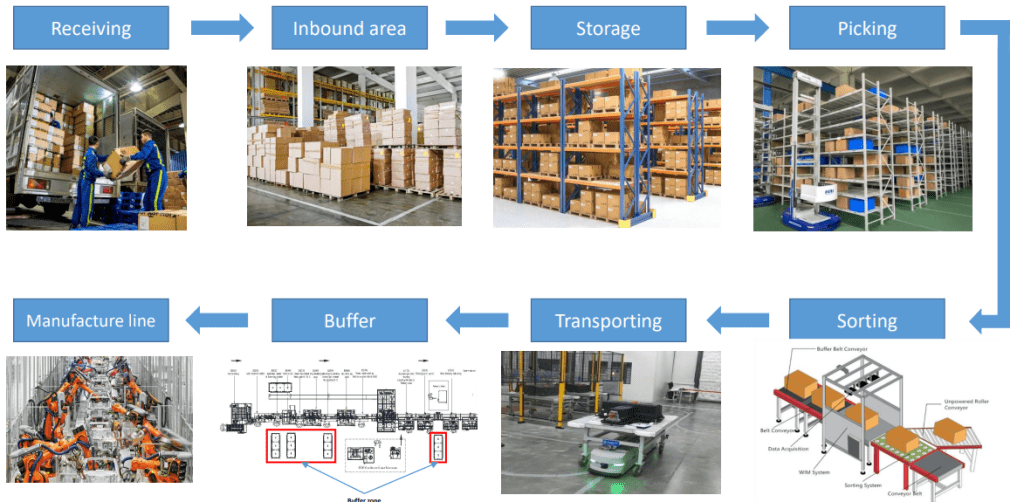
In modern times, material tracking plays an increasingly significant role in the production process because:
- Easy Control and Adjustment: Tracking allows for easy control and adjustment. Organizers and managers can easily know the quantity and location of goods, enabling adjustments if abnormalities or discrepancies are detected.
- Increased Accuracy and Speed: Workers can swiftly identify and locate material and product information, enhancing accuracy and processing speed.
- Effective Inventory Management: Material tracking aids in efficient inventory management, ensuring that inventory is consistently updated and properly organized.
- Reduced Errors and Costs: The automation and accuracy of tracking systems reduce errors and costs associated with mistakes.
- Resource Optimization: Smart tracking optimizes labor and resource utilization, boosting productivity and reducing labor costs.
Technologies for material tracking commonly utilized include:
RFID (Radio-Frequency Identification): Utilizes radio waves to automatically identify and track materials and products in real-time. RFID reduces search time and enhances precise location identification.
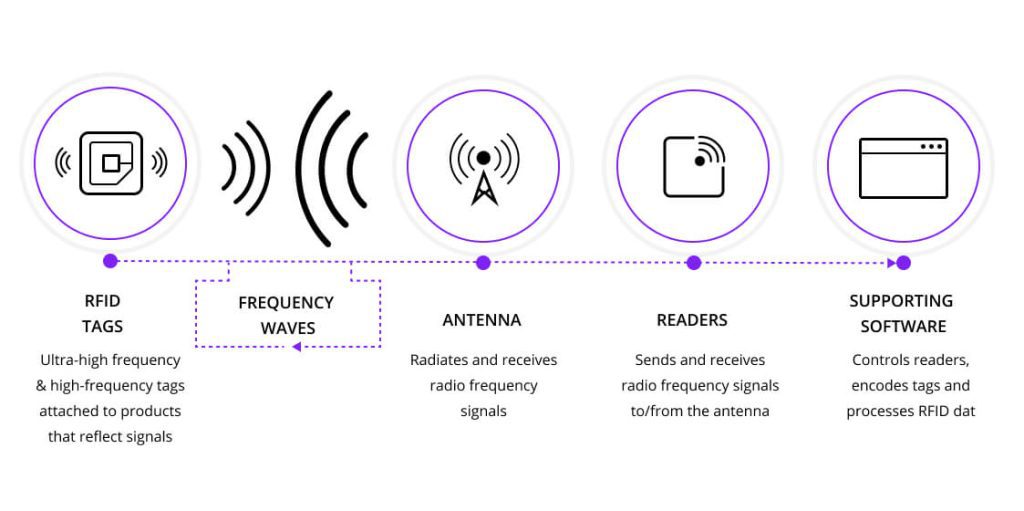
Barcode: Barcoding is a prevalent and cost-effective tracking method. Scanning barcodes allows for swift updates of product and location information into the system.
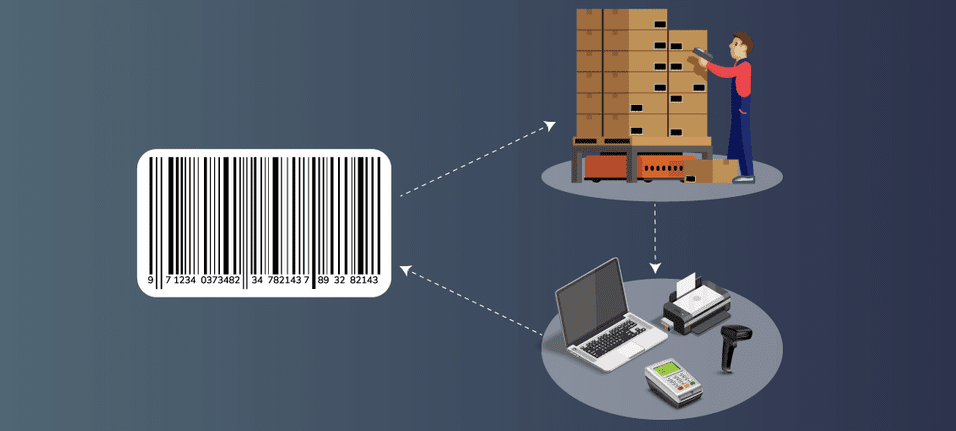
Pick to Light: This technology guides warehouse workers using indicator lights and displays the quantity to be picked. It increases efficiency and accuracy in the picking process.
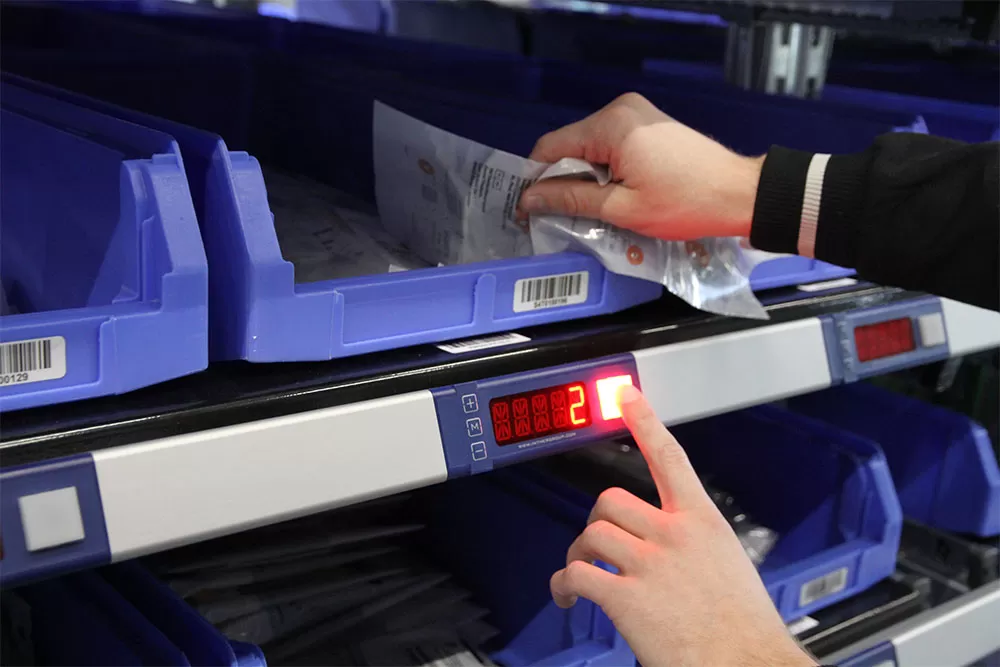
Other identification and traceability technologies include QR codes, GS1 codes, or related identification technology solutions.
PNC TECH Team’s Capabilities:
With extensive experience integrating solutions for major partners in the logistics and transportation industry such as Viettel Post, as well as prominent automotive industry partners like Vinfast and Nissan, along with a team of engineers well-versed in the latest technologies and continuously trained and updated with modern techniques by international experts, PNC TECH is confident in providing customers with optimal solutions that save resources and align with the specific needs of their businesses.
Contact with us to reach more infomation:
Hotline: 0919 247 843
Email: diep.ns@pnctech.vn
Address: A17 Building, 17 Ta Quang Buu, Hanoi


